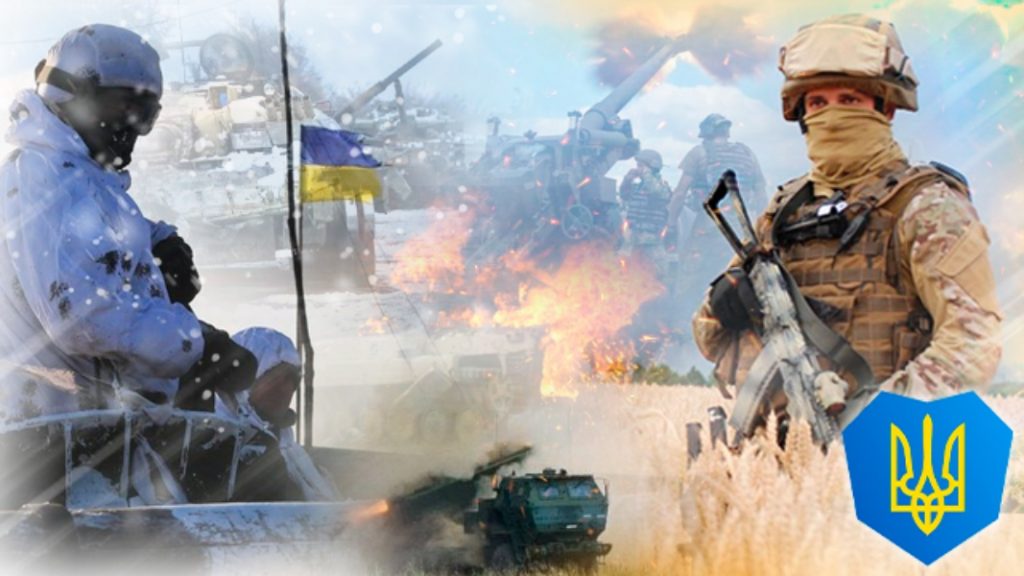Almost 200 days have passed since the Russia invaded Ukraine on a full-scale. On the morning of February 24, 2022, the Russian army launched an attack, having employed almost all weapons available, with their missiles attacking cities and armored combat vehicles crossing into the country in a bid to occupy its entire territory. Even before Russia unleashed hostilities, Russian experts claimed Kyiv would fall within three days. However, more than six months into the invasion, Ukraine has launched a counteroffensive, while the situation is becoming worse for Russia with every coming day: nights are getting colder, the invasion force is running out of manpower, while the morale of Russian soldiers is going downhill. Meanwhile, Russian military equipment and ammunition depots are getting systemically destroyed by Ukraine’s high-precision weapons generously provided by the nation’s Western partners.
In the wake of the failures of the so-called “special operation,” the Kremlin’s propaganda machine started to form for its audiences an alternative picture of developments. Besides concealing unpleasant truth such as combat losses, its task now is to find the right kind of interpretation for those military mishaps that just can’t be hidden. First of all, it’s about Russians pulling from the previously occupied territories or losing on the battlefield much boasted but scarce “hi-end” military hardware, the absence of which can’t be overlooked. First of all, this applies to warships, as well as ammunition depots or oil storage facilities being destroyed in front of multiple eyewitnesses immediately spreading the bad news across social media.
Even despite obvious photo and video evidence, modern-day military propaganda efforts in Russia still boil down to categorically denying any involvement of Ukraine’s forces in Russian military failures. Every time a Russian military facility is hit, propaganda pundits report on the incidents applying cliché euphemisms, such as «bang», «smoke,» or others, but never a “missile hit.” In one of such cases, Vyacheslav Gladkov, a governor of Russia’s Belgorod region bordering Ukraine, explained the blasts at ammunition depots near the village of Tymanovo as «self-ignition» due to the «lens effect due to hot weather.» In turn, the retreat of Russian troops tends to be explained by “humanitarian” reasons or gestures of “goodwill.» In no case do such reports even suggest that it’s the effective action by Ukraine’s military that has caused trouble.
A few curious cases should be recalled where propaganda tried to hide Russian army’s failures:
- Ukrainian missiles hitting the Black Sea fleer’s flagship, the Moskva missile cruiser. According to the Russian Ministry of Defense, the ship sustained «serious damage due to the munitions detonation following a fire onboard.» Even as the ship was sinking, Russian defense officials spread misinformation claiming «the source of the fire has been contained and ammunition blasts have stopped.» When the loss of the ship became obvious, they altered their version of events by stating that the cruiser sank «amid a storm.»
- Ukraine’s Tochka-U missile hitting the Saratov large landing craft in the port of occupied Berdiansk in March. Despite the fact that the ship sank as a result of a fire and ammunition detonation, the Russians assured the public that there was no incoming missile involved and that the fire onboard the ship that was to blame.
- Russian troops retreating from Kyiv region, starting March 30. The withdrawal was officially referred to as a “scheduled regrouping of forces in the Kyiv and Chernihiv directions,» although the Russians simply no longer had a capacity to hold this ground.
- Russian troops being forced out of Snake Island after Ukraine attacked it several times, including hitting Russian navy cutters off its coast. The escape from the island was explained by claiming the forces have «fulfilled the tasks assigned.» The move was also referred to as a «a gesture of good will.»
- Explosions rocking the Saki airfield outside Novofedorivka in occupied Crimea. Russian defense officials claimed it was about aviation munitions self-detonating at the site, although satellite images showed at least eight Russian warplanes destroyed as a result of the attack.
- Today, Apty Alaudinov, Commander of Akhmat, an ethnic Chechen special forces unit, said that allowing a Ukrainian counterattack was a tactical move on the part of the Russian army.
Russian authorities are desperately trying to hide the fact that the Ukrainian army can now easily engage Russian troops in the latter’s rear and go on the offensive. After all, the reputation of Vladimir Putin and his entourage is already quite fragile. It appears, however, that the Russian defense ministry officials consider their Russian compatriots idiots, deceiving them even as regards facts that just can’t and shouldn’t be denied. At the same time, these very officials urge Russians to join a «special operation» and die in Ukraine.

